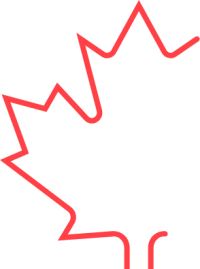Vancouver Coastal Health (VCH) is seeking a solution to support the documentation and archiving of Point of Care Ultrasound (PoCUS) images for improved patient care and enhanced training of internal medicine residents.
VCH is posting this Call for Innovation to seek out qualified Western Canadian companies who can meet the desired outcomes. VCH and CAN Health reserve the right to not move forward with this project at their full discretion and in particular if there are no qualified Western Canadian companies that can reasonably meet the desired outcomes.
*Business must be registered in Western Canada in order to qualify for this project.
Problem Statement: Vancouver General Hospital (VGH) is a teaching hospital that provides training, including on point of care ultrasound (POCUS), to internal medicine residents from the University of British Columbia (UBC). PoCUS allows clinicians to obtain ultrasound images at the bedside and incorporate them into patient care immediately allowing for timely and more accurate diagnostic and treatment decisions. The implementation of a centralized PoCUS archiving system coupled with a standardized method to access and review the images stored will enhance and support quality patient care and the continuing education for all internal medicine physicians and residents.
The VGH Internal Medicine program is looking for a centralized PoCUS archiving solution that will meet the following objectives:
- Improve a patient’s quality of care by standardizing a process by which scans are regularly reviewed by PoCUS experts to allow for higher quality images and improved quality decision-making.
- Improve patient experience by improving the ability to arrive at a timely and more accurate diagnosis resulting in a more timely identification of the treatment path.
- Improve resident’s experience by increasing the number of Trainer-to-Residents interactions to review PoCUS images.
- Improve clinical experience by:
- Increasing the opportunity to review images that have been performed at earlier stages in patient encounter.
- Increasing the opportunity to compare new images with previous images at earlier stages in patient encounter.
Desired outcomes:
The proposed solution must:
- Achieve an outcome measure of greater than 75% of all PoCUS images will have a Trainer-to-Resident interaction for review.
- Increase by 50% in the use of serially repeated scans to guide therapy by the end of the project.
- Improve the patient’s quality of care by increasing the opportunity to review images performed at earlier stages in patient encounter.
- Increase the opportunity to compare new images with previous images at earlier stages in patient encounter.
- Allow for images to be reported in a standardized fashion.
- Allow for images to be retrieved and reviewed by other clinicians involved in patient care.
- Provide supervisor system access for feedback and teaching.
- Provide system access for a total number of 180 clinicians, where approximately 40 clinicians could access the system during a given period.
- Support a total of 7-10 PoCUS machines connected to the system to download images.
- Support sufficient storage for 100-200 scans (6 second clips) per day initially, with potential for further expansion.
- Ensure that access to the PoCUS data is only made available to authorized individuals and that reasonable measures are taken to prevent any unauthorized access, disclosure, loss or theft of information as per VCH policy for Information Privacy & Confidentiality D-00-11-30025 | IM_101.
- Be a cloud-based, WIFI solution and all images must be stored in Canada.
Considerations:
- Compatibility with CERNER would be an asset
The maximum duration for a project resulting from this Challenge is: 9 months
Vancouver Coastal Health facilities lie on the traditional unceded homelands of the fourteen First Nation communities of Heiltsuk, Kitasoo-Xai’xais, Lil’wat, Musqueam, N’Quatqua, Nuxalk, Samahquam, Sechelt, Skatin, Squamish, Tla’amin, Tsleil-Waututh, Wuikinuxv, and Xa’xtsa. Vancouver Coastal Health honours its commitment to supporting the journey of reconciliation with Indigenous peoples in our region. We are committed to improving the health and access to culturally safe healthcare for Indigenous people and we recognize that we all have a contribution to make in reconciliation and healing.
Vancouver General Hospital (VGH), the largest acute care facility in the Vancouver Coastal Health Authority, provides a number of specialized care services to residents in Vancouver and across the province.
It is also a teaching hospital, affiliated with the University of British Columbia (UBC). The VGH provides training to 140 internal medicine residents across the 3-year program representing approximately 10 % of the total residents across Canada. The ability to properly train these residents in Point of Care Ultrasound (PoCUS) is quickly becoming a necessity for a successful educational program.
PoCUS allows clinicians to obtain ultrasound images at the bedside and incorporate them into patient care immediately allowing for timely and more accurate diagnostic and treatment decisions. Documented benefits of PoCUS include improved diagnostic performance, superiority over traditional clinical workup, reduced procedural error and complication rates, and improved patient outcomes and mortality. Both attending physicians and trainees use PoCUS to enhance their practice, and PoCUS has been recognized as a core skill by many disciplines, including Internal Medicine, Emergency Medicine, Critical Care, and Anesthesia.
Currently, PoCUS images are not able to be stored and retrieved. This hinders the ability to compare serial scans as a way to guide treatment decisions; and also may result in unnecessary repetition of scans simply due to an inability to view images that a colleague has just acquired. VCH is lagging behind many other institutions across Canada and the United States who have a digital archiving platform.

